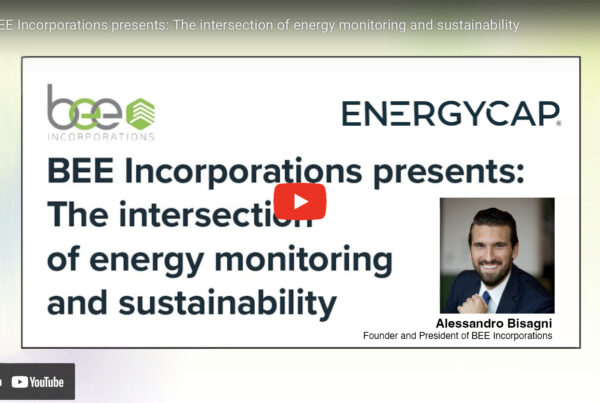In an online age where we find more and more ways to connect to each other across the globe, it’s unthinkable to disconnect one’s self from the basic utilities we depend our life on. Water, electricity, basic plumbing. Those things should be a given after all. And yet, that’s what some people do—they purposely live off-grid and reap its many benefits.
Much has been said about the virtues of off-grid living. It’s the ultimate sense of freedom—not simply a cutting off of ties from corporations—but more importantly, independence and self-sufficiency. No longer are you at the mercy of corporations and their whims (bills, price hikes, disconnection notices, outages, etc).
Instead you generate your own power or harvest your own water, getting only enough for you and your family’s needs. Certainly a good philosophy to have.
Of course, off-grid living isn’t a new thing. Our prehistoric ancestors lived off-grid simply because they had no choice. Today, in many parts of the world, there are still communities with no access to power lines and potable water. Some completely have no prior experience to being connected to the grid, only making do with low-tech means of rainwater harvesting and maybe just a fire lamp, their schedules bluntly dictated by the alternating darkness and daylight.
So that’s the sad fact for people who live off-grid simply because they’re left with no choice. It isn’t exactly comfortable nor empowering. In the movies and even cartoons, those peaceable off-grid communities deliberately removed from society in general (think the Shire inhabited by the Hobbits, or the mushroom village of the Smurfs deep in the forest) look romantic and quaint. But in real life it isn’t so.
Purposely Living Off-Grid
When done purposely, with the right system, knowledge, and funds, off-grid living doesn’t have to sacrifice comfort at all.
There’s actually two ways to go about it—completely off-grid, or grid-tied, in which case a home’s solar system is connected to the utility company, letting the grid store your electricity for you instead of relying on a battery because it was more efficient that way. In the past, grid-tie systems were fully dependent on the power grid—when the grid is down, power goes out. This doesn’t have to be the case with today’s inverters where a backup battery takes over in case the utility power fails.
All these talk about solar systems and batteries and generators and inventors make it seem like off-grid living can be fairly expensive. It is, although that expensive system essentially pays for itself in the years to come. Exactly how soon depends on a lot of factors of course—usage, weather variations, government subsidy etc.
How Sustainable Really?
Which brings us to the question of how sustainable off-grid living really is?
While doing the piece on small space living last week, we read a Treehugger article regarding tiny homes and then found the comment section more interesting. Two commenters were arguing about off-grid systems and their purported sustainability.
In the words of the unconvinced guy (who happens to be an electrical and mechanical engineer, by the way),
“I remain unconvinced about ‘off-grid’ when an established infrastructure is readily
available, even if that infrastructure isn’t green.”
The believer, on the other hand, thinks the unconvinced guy is “trying to run an off-grid house like a grid house. If [his] country requires those expensive systems then [he] should move or get the laws changed because off-grid systems do not have to be expensive, large or complicated.”
Don’t worry, their repartee didn’t turn ugly or bloody or anything; it was friendly all the way through. What’s worth noting though is that at the end of the day, whoever was right between them, each camp truly wanted only the best for the environment.
The first guy made a good point though: why go off-grid when you can take advantage of existing power lines that are considerably more efficient than any expensive set of solar panels. We shouldn’t forget those solar panels and batteries have embedded energy in them—they weren’t created in a vacuum after all—and installing them requires transportation, labor, maintenance, the works.
Being Grid-Tied
Consider that home in New Canaan, Connecticut that made the news last Monday for being awesomely LEED Platinum-awarded. The owners could have gone off-grid, but chose not to since there were existing lines to take advantage of anyway. The point is, with or without a solar bank, the homeowners dutifully kept their bills low by consuming less—that’s the whole trick to it anyway. We’ve become a society who consumes and wastes a lot. We switch to energy-efficient LEDs and then light up the entire façade of a building or the entire length of a bridge just to amaze ourselves. We mine our planet for resources to manufacture millions of square feet of solar panels just so we’ll have more opportunities to harvest the sun’s power.
(Incidentally, the 5,000 sq.ft. home is now for sale because the widowed owner is moving to a smaller place—again a conscious nod to sustainability.)
Going off-grid may or may not be the panacea to our energy crises—we haven’t quite perfected the efficiency and durability of solar panels yet, and brought the costs down to a wallet-friendly level.
Right now, solar panel prices are getting cheaper because of surplus overproduction from China. That may be a good thing for the environment but not always for other countries whose own solar manufacturing industries are displaced because they cannot compete with the low prices. Impose tariffs, and we might experience a backlash from Chinese manufacturers who might just raise their prices. It’s a heady roundabout dilemma—for developers, consumers and installers alike. While the rest of the world—the accidental Hobbits and Smurfs—have no idea what they’re missing out on.












